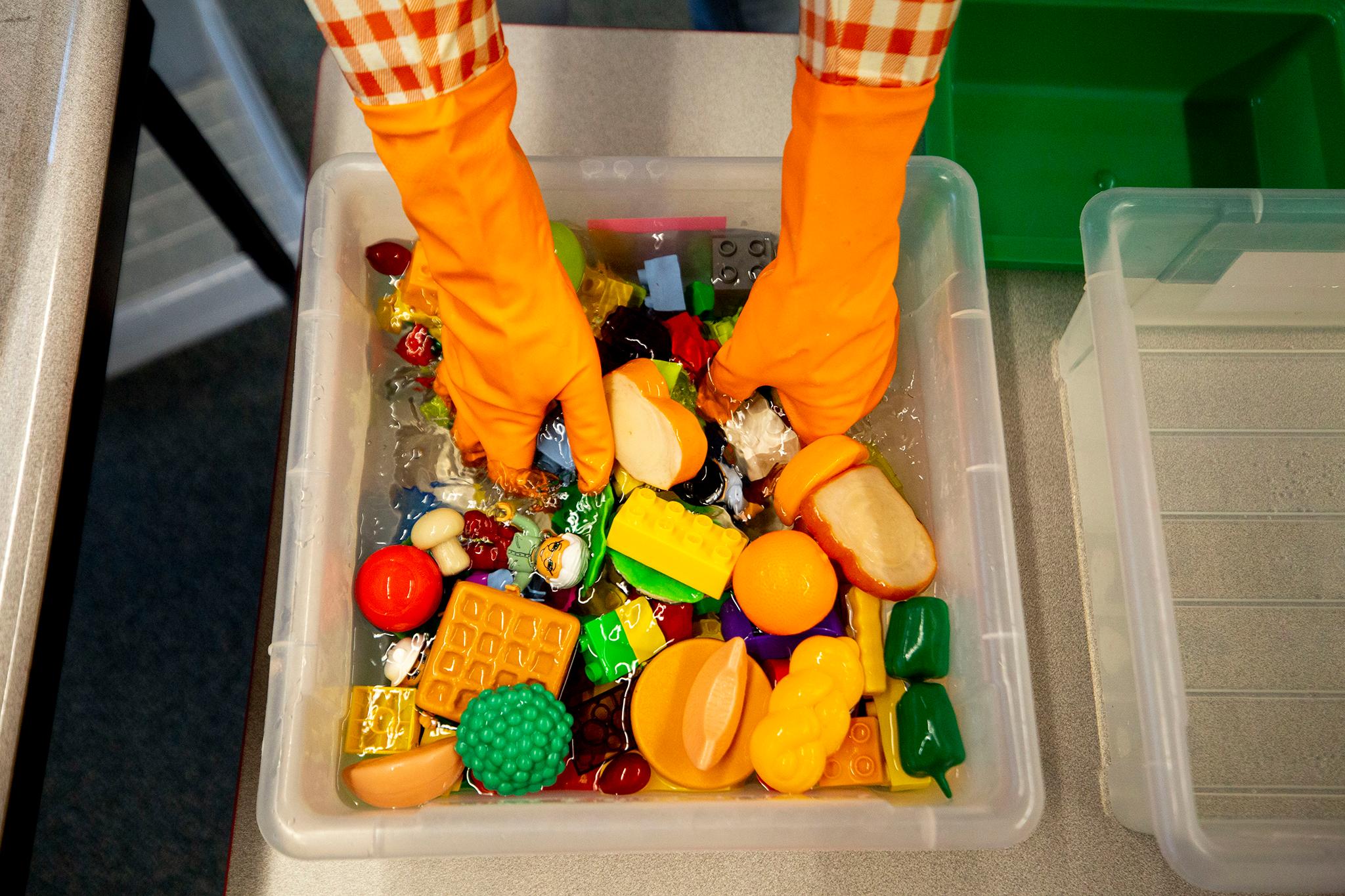Little kids aren't exactly good examples of how to act during a viral pandemic. They love putting their fingers (and other things) in their mouths (and other places). Getting them to wash their hands at all isn't the easiest feat, let alone washing them for 20 seconds. And imagine being four years old and not touching your face!
Denver has 471 active childcare centers, according to the city's business licensing department. State guidelines dictate whether they should close or not during the pandemic. For instance, any Colorado school or child care center with a confirmed case of COVID-19 must close for a minimum of 72 hours for cleaning and social distancing.
Colorado has no known cases of COVID-19 in young children, according to the Colorado Department of Public Health and Environment. But staffers at preschools and daycares are using caution and planning ahead.
Some are meeting with parents to stress the importance of keeping sick kids at home. Some are preparing to advise parents on how to keep kids busy and learning while at home -- if that's even a possibility. Others are playing social worker, helping families connect with services to ease the burden in case of a closure.
Clayton Early Learning in northeast Denver is closed through at least March 20 after a staffer who may have been exposed to the virus exhibited symptoms. The school serves 192 families, all of them below the federal poverty line. Many rely on Clayton not only for education and a home away from home during the workday, but also for meals.
"It has enormous implications for our families," said Becky Crowe, president and CEO of Clayton Early Learning. "So what we've been doing over the last 24 hours is going into a mode of figuring out what are all of the resources and supports that we can make our families aware of and connect them to."
Clayton will help families and its staff stay whole as much as possible during the closure, Crowe said.
Lily Palacios runs El Mundo Feliz, a daycare in Ruby Hill that serves 35 families. She said state health officials came by Thursday and dropped off flyers laying out Colorado's rules for closing and sanitizing during the outbreak. Palacios is worried -- about the children, about their parents, and about her staff, which is fretting about a closure and the economic hardship that would accompany it.
El Mundo Feliz will hold a meeting with parents Friday night.
"It's really important that if their kids are sick to keep them home," Palacios said. "The staff is really worried about missing so many weeks from work. We're planning on being open but if kids are sick they cannot be here."
Some childcare centers said parents have asked what they should do with their kids if their workday oasis closes. First, here's a general Q&A from National Public Radio that touches on the subject.
Locally, El Mundo Feliz will send parents home from tonight's meeting with ideas for how to keep their kids busy should there be a closure -- crafts and other things kids can do to keep the brain churning and body moving.
Clayton Early Learning is developing a "tool kit" for parents to emulate lessons their kids would have received in class, Crowe said.
The Goddard School is also toying with take-home lessons if and when a closure becomes necessary.
"We're working on creating a plan for parents right now, but we don't have anything set in stone just yet," said Anastasiya Filatov, a staffer at the Platt Park preschool. "We honestly would not be able to provide services like video chat like other schools would, but we do believe in learning through play."
Teachers could print out lessons and give them to parents, she said.
Of course, all of these ideas are predicated on the idea that parents have the ability to stay home with their kids, rather than working outside of the home to provide for them. Staying home and keeping a job is often not the case, several child care providers said, meaning sending kids home from school can feed another type of crisis -- a socioeconomic one.
"That is the conundrum and why it's always a wrenching decision to figure out how to balance public health and the safety of our team members and our children and families," said Crowe of Clayton Early Learning. "And I think many families will end up needing to have to rely on relatives or family, friends and neighbors to be able to move through those periods."














